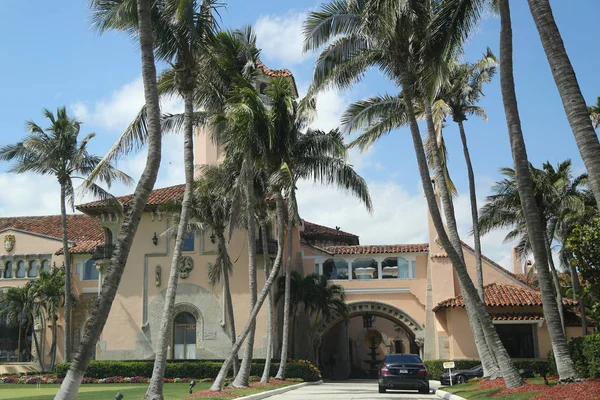France’s Newest Hero
Marc Bloch’s ascent to the Pantheon could not be more timely.

In the spring of 1944, the Gestapo picked up a slight, bespectacled man in his late 50s. Despite a disguise and false documents, they were able to identify their captive as Marc Bloch, lately a medievalist at the Sorbonne and presently a regional commander in the French Resistance. Imprisonment, interrogation, and torture followed; finally, the Germans took this middle-aged historian to a meadow and machinegunned him in the back, just days after the Allies landed at Normandy.
Eighty years on, the French state has decided to accord him the nation’s ultimate honor. “For his work, his teaching, and his courage,” President Emmanuel Macron announced in November, “we have decided that Marc Bloch will enter the Pantheon.” Bloch’s mortal remains will join those of Rousseau, Voltaire, Hugo, Saint-Exupéry, Curie, and dozens of other embodiments of Gallic excellence.
Given the frenetic pace of events in France since then—in just the first week of December, the country’s Prime Minister was toppled and Notre Dame was triumphantly reopened—it’s understandable that this received only passing coverage. But it’s not unrelated to those more spectacular developments; indeed, Macron himself has long been fascinated by Bloch, and his decision to confer such a signal honor tells us something about his apparently embattled political project.
In a passage the president is apparently fond of quoting, Bloch observed that there are two types of Frenchmen who will never really understand their civilization: “those who refuse to thrill to the Consecration of our Kings at Rheims, and those who can read unmoved the account of the Festival of Federation.” To be fully French is to be alive to the glories and richness of the country’s religious, monarchical roots, while also leaning into the exhilarating vistas opened by the experiment of 1789. In political terms, this means reconciling the great tensions that continue to run through the heart of French identity: republicanism and authoritarianism, universalizing egalitarianism and particularist exclusion, militant laïcité and public Catholicism. Only France’s most brilliant leaders—Napoleon, Clemenceau to some extent, de Gaulle—have managed this balancing act; Macron’s Jupiterian ambition has been to do so under 21st-century conditions. History will judge him according to the success of the effort.
Hence the interest in Bloch. A leftist who considered it his ineluctable duty to fight and die for his homeland, a committed republican transfixed by medieval kingship, a secularist who sought to mentally inhabit the most intensely religious period in the history of man—through his life and work, this most recent panthéonisé offers ample inspiration for such a synthesis.
Just how did Bloch come to contain such multitudes? Much can be explained by his status as a “partial outsider,” firmly ensconced in French society yet able to see things invisible to most members. Two facts of his background, in particular, set him apart from the typical Frenchman.
First, the family hailed from Alsace, a region lost to German expansionism fifteen years before Bloch’s birth in 1886. His father and uncles had defended it during the Franco–Prussian War, and fled rather than live under a foreign yoke. They conveyed this nationalism to Bloch at an early age, imparting a love of country and a sense of patriotic duty that would never leave him.
Second, the family was of Jewish descent. Though he was raised in a secular household (and would remain outside organized religion for the rest of his life), in fin de siècle France Bloch’s Jewishness would at times mark him out as a quasi-alien, particularly after the Dreyfus Affair inflamed the nation’s latent antisemitism. But rather than sparking resentment—or a retreat to ethnoreligious particularism—Bloch’s experiences as a Jew seem to have informed a universalistic, humanist political outlook. “I am at pains never to stress my heredity,” he would later write, “save when I am in the presence of an antisemite.”
Bloch was thus keenly aware, not just of how France could fall short of her promise, but how vast and singular was this promise in the first place. And indeed, France had extended him opportunity and, for a while at least, recognized his talents. He trained for a promising academic career as a historian of the Middle Ages, with a particular focus on France’s Capetian monarchy. Following distinguished service in the First World War (during which he acquired a vital, firsthand experience with a broad cross-section of humanity), Bloch turned away from the political and military developments that feature so heavily in medieval chronicles, focusing instead on economic, social, and even psychological phenomena. In 1924 his first major work was published: The Royal Touch, a brilliant, unconventional study of the folk belief that a king’s touch could heal scrofula.
By training his gaze on the deeper structures of society, Bloch was able to produce incredibly vivid and edifying historical writing. Take Feudal Society, for instance. In this book—a masterpiece of brevity and sweep, which does in 500 pages what would take 2,000 in a lesser work—one gets an unnerving sense of both the strangeness and the vitality of the medieval world. “The savage animals that now haunt only our nursery tales,” he reminds us, “prowled in every wilderness, and even amongst the cultivated fields.” The very nights were darker, the cold more intense. The visible world was a cipher, permeated by and revelatory of the vastly more important world of the spirit: Men weighed everything in the light of Catholicism, and “fear of hell constituted one of the great social forces of the age.” The nobility, which pined for nothing more than “fresh, joyful war,” bound the mass of laboring mankind to its manors through serfdom, and—hard currency being perennially scarce in post-Roman Europe—engaged the services of its members and other elites through prebends (essentially, livings in a lordly household) or grants of land (these latter constituting, of course, the basis of feudalism).
Bloch’s work also brought broader changes to historiography. Together with his colleague Lucien Febvre, he started the Annales d’Histoire Économique et Sociale, described by a contemporary as “the liveliest, most suggestive, and original of all the historical journals in Europe.” Such was its influence that its name came to stand for an entire historiographical movement: the Annales school, which centered the operation of social, economic, and geographical factors over long stretches of time (the longue durée) and counted among its members some of France’s greatest historians.
Despite this long residence in the ivory tower, Bloch maintained that it was “the historian’s prime duty…to show a keen interest in life.” It was his misfortune to be born in times more keenly interesting than most. As the clouds darkened through the ’30s, his background precluded him from involvement with the fascists and the ultranationalists; to his great credit (and unlike many of his colleagues), he was unmoved by the siren song of communism. For, his long love affair with the Middle Ages notwithstanding, Bloch had remained in his ideological commitments a man of the Enlightenment.
When the storm finally broke, he put aside his 53 years and again donned a uniform, serving as an officer through the Phoney War and the Battle of France. After the Third Republic surrendered to Hitler in June of 1940, Bloch committed his interpretation of the ordeal to paper. The result was one of the most compelling books to emerge from the Second World War.
Written “in a white heat of rage,” L’Étrange Défaite—Strange Defeat—excoriates a twofold failure: that of the French army, which was poorly prepared, sloppily organized, and badly led; and that of the nation itself, which was crippled by internal divisions and governed by men without the stomach for sacrifice. Bloch is ruthless toward those who held authority, whether military (“our High Command, finding itself face to face with novelty… not only experienced defeat, but, like a boxer grown fat and thrown off balance by the first unexpected blow, accepted it”) or civilian (“it was entirely owing to our ministers and assemblies that we were so ill-prepared”). As for the nation’s rank-and-file, he expressed respect and admiration, praising “the high nobility which lies unexpressed in the hearts of a people which, like ours, has behind it a long history of political action.”
Like his historical writing, Strange Defeat bears the marks of unimpeachable craftsmanship: it is succinct, frank, and relentlessly original; suffused with sufficient detail to serve as an authoritative account of the Fall of France, yet grand and profound enough to offer an ideal-typical portrait of a democracy too weak and decadent to live up to its own ideals.
What is more, Bloch was too honest, too scrupulous to exempt himself and his confreres from this indictment. “The generation to which I belong,” he relates, “has a bad conscience. It is true that we emerged from the last war desperately tired, and that after four years not only of fighting, but of mental laziness, we were only too anxious to get back to our proper employments…so behind were we with our work that we set ourselves to bolt it down in indigestible mouthfuls. That is our excuse. But I have long ceased to believe it can wash us clean of guilt.”
Despite the urgings of his friends, and the offers of several American and British universities, the historian elected not to escape the consequences of the defeat he chronicled. Things worsened as the war wore on; he was forced out of his academic posts, and subjected to humiliating incidents of harassment. When, in late 1942, the Nazis moved to directly occupy the area heretofore left to the Vichy authorities, Bloch joined the Resistance. Finally, that fatal encounter with the Gestapo.
As France closes out 2024, the kind of ecumenical, hard-headed nationalism that Bloch embodied looks increasingly necessary. Macronisme, to the extent we can speak of such a thing, aspires to the energy, the broad republican commitments, and the respect—at least on an intellectual level—for French identity and history. Less certain is whether it also embraces the martyred historian’s faith in the common man, or his ethic of patriotic sacrifice.
The reopening of Notre Dame may be adduced as at least partial evidence of success. Accomplished in the span of only five years through the intensive mobilization of state resources and the commitment of countless volunteers, the restoration of such an integral part of the national patrimony is a remarkable accomplishment. Of course, on the other side of the ledger is the political crisis that has roiled the country for the better part of the year, culminating in the collapse of the Barnier premiership. It suggests a lack of understanding between rulers and ruled; it certainly evinces some of the same complacency and arrogance that came in for such withering criticism in Strange Defeat.
Considered more broadly, Bloch’s induction reminds one of how lucky France is to have the Pantheon, that hallowed repository for her best and brightest and bravest (alas, it’s impossible to imagine such a thing working in contemporary America). If nothing else, this latest addition affords the nation an opportunity to reflect on the legacy of one of its greatest sons.
The post France’s Newest Hero appeared first on The American Conservative.

